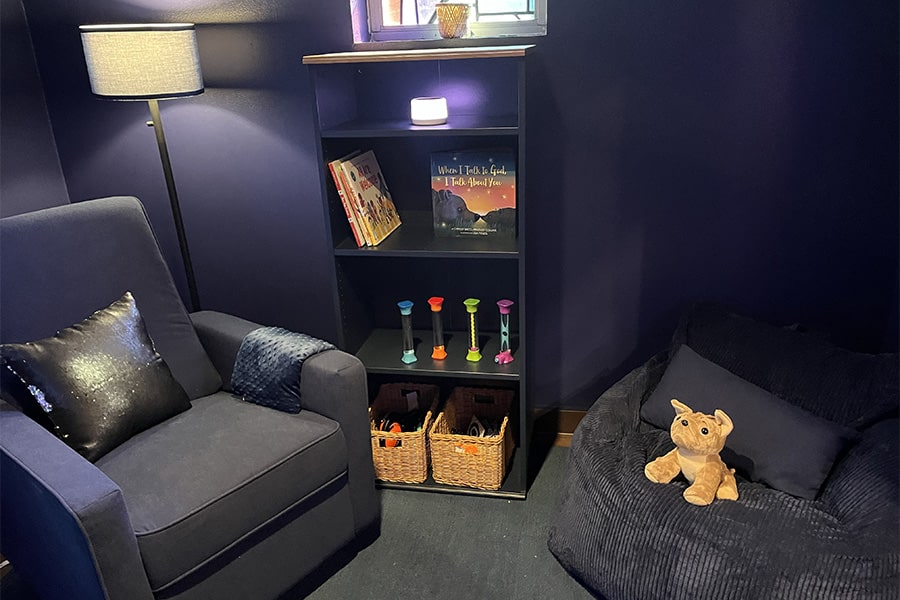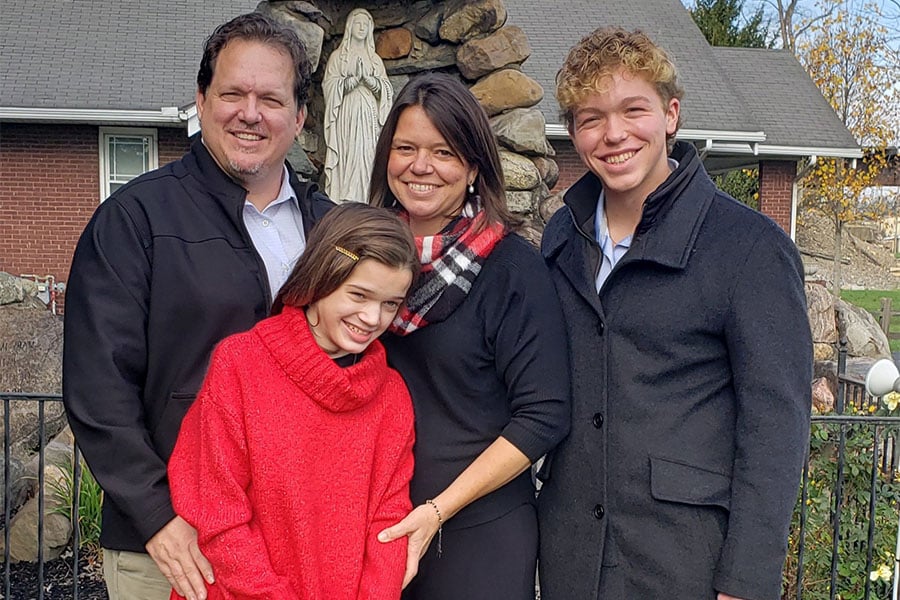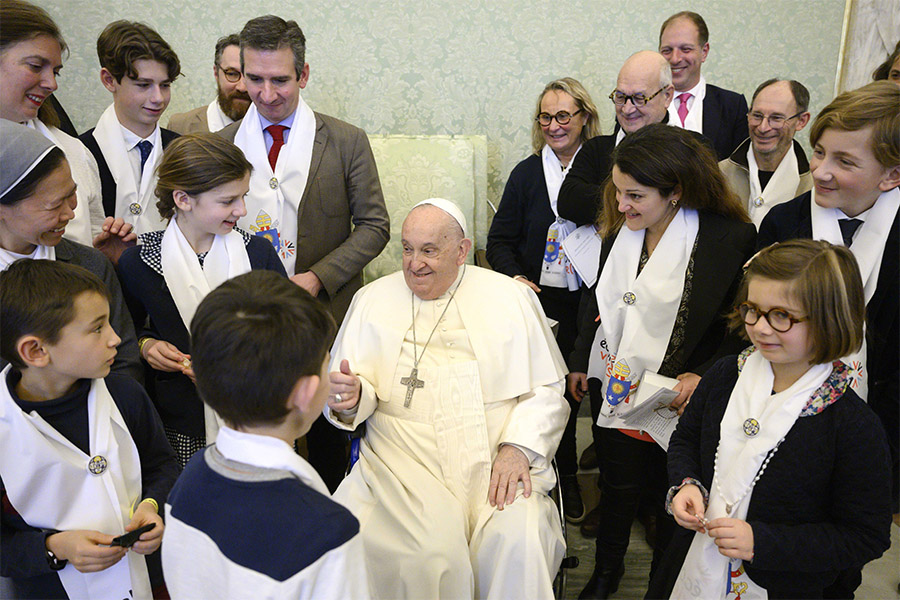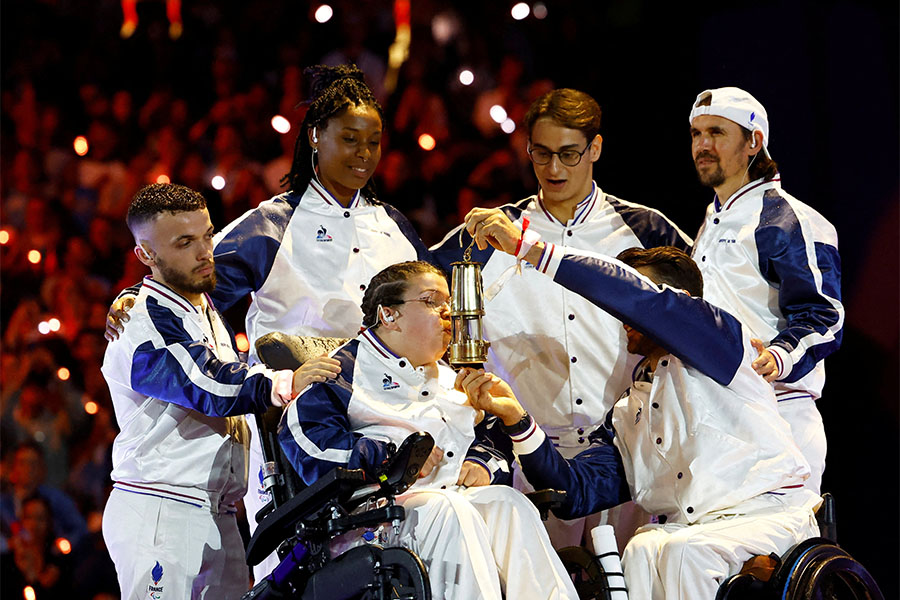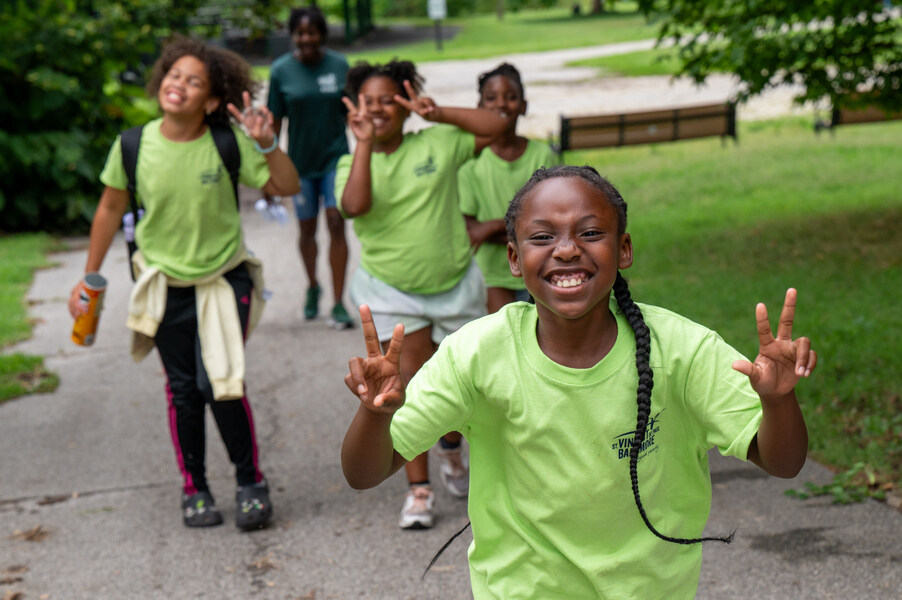From 2015 to 2017, the U.S. Centers for Disease Control and Prevention reported 17 percent — about one in six — of children ages 3-17 were diagnosed with a developmental disability, including attention-deficit/hyperactivity disorder, autism spectrum disorder and intellectual disability.
It’s a figure accentuating a distinct disconnect with another set of statistics, cited by the National Catholic Partnership on Disability: Almost one-third of parents polled in a 2010 study of 400 families who have children with disabilities said they left at least one church because their child was not included or welcomed. A 2013 study found more than half of surveyed parents of children with disabilities reported their child with a disability had been excluded at church.
The urgent need for Catholic parishes to welcome young and old with disabilities — and their families — was prominent among presentation threads at a Feb. 17 conference held virtually by the Diocese of Arlington, Va., “From Inclusion to Belonging: Creating Communities that Foster Mental Health for All.”
“A conference like this allows us the opportunity to acknowledge, what are the needs? What are we hearing; what are we seeing?” Arlington Bishop Michael F. Burbidge, who is both chair of the U.S. Conference of Catholic Bishops’ Committee on Pro-Life Activities and the episcopal moderator for the National Catholic Partnership on Disability, told OSV News. “To see where we have been somewhat effective in responding to those needs, and maybe sharing best practices with one another.”

“But also — with great humility — to acknowledge where there are gaps; where we can continue to improve,” Bishop Burbidge added. Such an obligation, he emphasized, isn’t optional. “This is the mandate of the Gospel,” he said. “It’s something we all must embrace.”
Indeed, the USCCB — in its 2017 document “Guidelines for the Celebration of the Sacraments with Persons with Disabilities” — flatly states: “It is essential that all forms of the liturgy be completely accessible to persons with disabilities.”
Listening sessions in the Diocese of Arlington — which is located just outside Washington — reinforced the necessity for action.
“With every listening session — every single one, without exception — we heard from people who said, ‘Could we do more to respond to the pastoral and spiritual needs of those with intellectual, developmental and other disabilities?'” Bishop Burbidge said. “And so obviously, that became part of our strategic plan.”
Awareness, Bishop Burbidge emphasized, is critical.
“Sometimes we can — as a parish or pastoral council — say, ‘We just don’t have anyone with intellectual disabilities or any certain needs in our parish.’ Well, the truth is that you do. Everyone does,” he said. “But we have to be willing to ask.”
Conference keynote speaker Mark Bradford — the Venerable Jerome Lejeune fellow at Word on Fire Ministries, and parent of a 22-year-old son with Down syndrome — told listeners, “Almost everyone — 90 percent by polls — agrees that we are in a mental health crisis in this country, and that it’s affecting us in various ways and various levels of severity.”
That crisis is even more threatening for those with disabilities, Bradford explained.
“There’s always a more substantial impact — anything that happens in the culture — on a more vulnerable population,” he said.
Bradford noted there is a 38 percent prevalence of mental health issues among people with disabilities — a fact that can be worsened by the exclusion often experienced in a parish setting.
“There’s the transcendent dimension of the human person that has to be satisfied to be healthy,” observed Bradford. “If there is not a response and a provision for that aspect of the human person — the transcendent dimension of the human person — once again, our physical health as well as our mental health are compromised.”
“So the question for us,” Bradford continued, “is how do we facilitate this conversation between intellectually disabled individuals and Christ?”
According to a 2004 study by Erik W. Carter — the Cornelius Vanderbilt professor of special education at Vanderbilt University — fewer than half of children and young people with autism and other disabilities attended religious services in any given year.
“This is a situation that we know exists, and that we need to work together to try to find solutions for. We have to get people to church,” Bradford said. “We have to ask ourselves why they’re not there. And we have to find ways within our parishes to find them, and bring them back so that they can be with us, worship within the body of Christ with us — and experience the recovery, and the solidity, and the confidence to lessen the vulnerability, reduce the stress, and allow people to heal and to become mentally well.”
Some individuals are, Bradford explained, uncomfortable with people who have disabilities; some are afraid of saying the wrong thing or giving offense.
“Through exposure, through relationship, through coming to better understand and see the humanity in individuals with disabilities, we can come to accept them,” said Bradford, “and welcome them more fully.”
The approach, emphasized Bradford, must be personal — not institutional.
“Individuals with disabilities are starving for relationships,” Bradford said, and parishes should include them “not because we’re doing them a favor, by welcoming them in, but they’re doing us a favor. Not so we can do acts of charity to make ourselves feel good; that’s insincere. … We’re embracing them as Christ asks us to embrace them.”
Kelly Mantoan, founder and executive director of Accepting the Gift, a ministry for parents who have children with disabilities, offered conference participants an opportunity to learn what the church can do to include — not isolate — individuals experiencing mental illness and other disabilities.
“My journey kind of started as a Catholic mommy blogger in 2012,” Mantoan said by way of a greeting, explaining that her two youngest sons — ages 13 and 15 — have a degenerative neuromuscular disorder, spinal muscular atrophy, that requires using power wheelchairs.
“As I started sharing more of my family’s life online — especially about what it was like to be a parent to my youngest two sons — I started getting a lot of emails from other parents whose children had a wide variety of diagnoses,” Mantoan said. “And they were reaching out to me — just this random blogger — because I was the only other Catholic special needs parent that they knew. They didn’t see any other children like their children in their parishes, and they didn’t know any other parents that were going through the struggles that they had.”
Their struggles were depressingly similar, she noted, and easily discouraging.
“When you get there,” Mantoan said, painting a verbal picture of a parish, “and there’s physical barriers — if I can’t get my boy’s wheelchairs anywhere in the building easily — if you get rude comments; or if you’re excluded or told to take your child outside because they’re being too loud — that could very well be the straw that breaks the camel’s back.”
Relationships are essential, Mantoan stressed.
“The most basic thing that I recommend for any family that has a child with disabilities, just start working on building a relationship with your religious education department: the DRE, the teachers and your parish priest,” she said. “Get to know them.”
For parents who may already be stretched thin, proactivity is yet another item on their to-do list. Advocacy, however, will not only benefit them.
“As you’re starting this process, look around your parish — find the members that have disabilities and their families, and start a dialogue with them,” Mantoan recommended. “This will be your first step. If you look around and you do not see people with disabilities, that is a huge red flag. It means that something is keeping them from coming — and you need to find out what it is.”
“If we don’t put in the work, we’re literally losing souls,” Mantoan emphasized. “We are saving souls. There are eternal consequences here.”
That is, Mantoan said, something parishes must wake up to.
“Taking action is not about doing things to make people feel special — but to make it possible for them to do what everyone else takes for granted,” Mantoan said. “You think about the man who had to be lowered through the ceiling to get to Jesus (Lk. 5:17-39). Everybody else could just walk in the door. … It shouldn’t be up to us as the parents to keep breaking in the ceiling.”
This story was updated March 4.
For further information and resources, visit the National Catholic Partnership on Disability: https://ncpd.org
For more information about Accepting the Gift, visit: https://acceptingthegift.org/
Read More Disabilities Ministry
Copyright © 2024 OSV News


